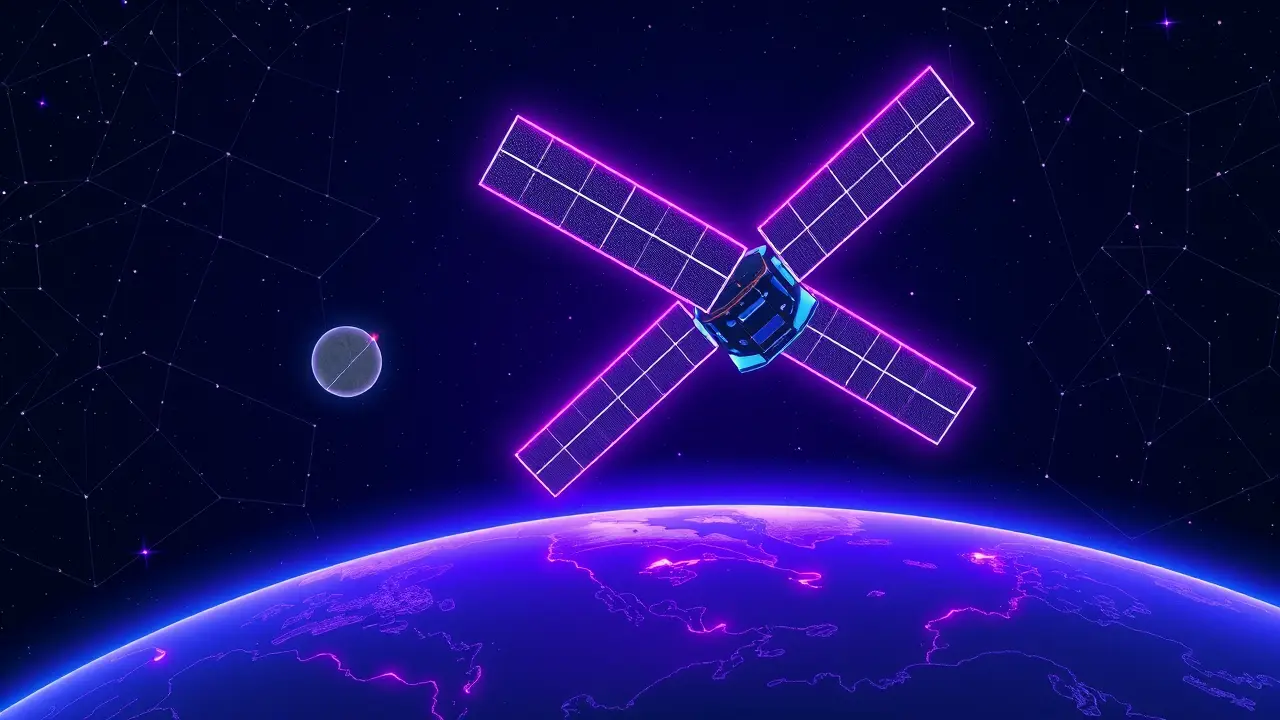Researchers find satellites exposing unencrypted data like phone calls.
In a revelation that feels like something ripped from a techno-thriller's opening chapter, a year-long investigation by cybersecurity researchers has laid bare a startling systemic vulnerability: satellites operated by major telecommunications providers, including industry titans T-Mobile and AT&T, are routinely transmitting vast oceans of data, including sensitive personal communications like phone calls, in a completely unencrypted state. This isn't a hypothetical, future-tense threat; it's a present and persistent reality, a digital sieve through which our most private exchanges are leaking into the void, accessible to anyone with the requisite technical know-how and a listening dish.The researchers, who have spent the last twelve months in a quiet, urgent dance of disclosure with the affected corporations, paint a grimly pragmatic picture for the immediate future, warning that despite their alarms, this colossal exposure of satellite data is not a problem that can be patched overnight and will likely persist, a lingering digital pandemic, for years to come. To understand the gravity of this, one must first grasp the sheer scale of the infrastructure involved; we're not talking about a single errant satellite but a sprawling constellation of them, the backbone of global connectivity for everything from maritime shipping and aviation to remote industrial operations and emergency services, all functioning on protocols that seem almost archaic in an age where end-to-end encryption is a standard marketing bullet point for consumer messaging apps.The data coursing through these celestial relays isn't just metadata; it is the content itself—the whispered conversations, the strategic business negotiations, the frantic emergency calls from a ship in distress—all traveling in the clear, a raw, unguarded stream against the silent backdrop of space. The technical reasons for this lapse are a complex tapestry woven from legacy systems, the immense computational overhead and latency introduced by robust encryption over vast orbital distances, and a historical culture within certain sectors of the telecom and satellite industries that prioritized operational simplicity and backward compatibility over what was once perceived as a niche, state-level security concern.This discovery forces a fundamental re-evaluation of our threat models, pushing the risk far beyond the domain of sophisticated nation-state actors, who have likely been exploiting this for intelligence purposes for decades, and into the hands of a much broader array of malicious entities. Imagine a well-resourced criminal syndicate using intercepted satellite calls to pinpoint the location and cargo of a valuable shipment for piracy, or corporate spies eavesdropping on executive communications from a private jet, or even hacktivists weaponizing this open faucet of data to create global disruption.The parallels to the early, wild-west days of the internet are stark and unsettling; we are witnessing a repeat of the same foundational mistakes, where foundational infrastructure was built for functionality first, with security bolted on as an afterthought, a pattern we are now painfully repeating in the final frontier. The response from the implicated organizations, while officially one of cooperation, hints at the monumental challenge ahead; retrofitting encryption across an entire global satellite network is akin to trying to replace the foundation of a skyscraper while it remains fully occupied and operational.It requires not just new software, but potentially new hardware deployed across constellations, a process that is astronomically expensive, logistically nightmarish, and measured in years, if not decades. This creates a dangerous liminal period, a window of vulnerability that could stretch on for the foreseeable future, where we are collectively aware of the leak but largely powerless to stop it.This scenario also ignites a fierce debate in policy and academic circles about the very nature of regulation and responsibility in space-based infrastructure. Should governments mandate, through agencies like the FCC or their international equivalents, a minimum encryption standard for all commercial satellite data transmissions, effectively treating this shared orbital commons with the same seriousness as we do terrestrial financial or medical data? Or does such a move stifle innovation and place an undue burden on an industry critical to global development? The ethical dimensions are equally profound, raising questions about the privacy rights of individuals who may have no terrestrial alternative for communication and are thus forced into this inherently exposed medium.Expert commentary from cryptographers and satellite engineers suggests that while the technical solutions—from implementing more efficient, quantum-resistant cryptographic algorithms to developing novel key distribution systems tailored for high-latency environments—are within theoretical reach, the political and economic will to deploy them at scale is the true bottleneck. This isn't merely a technical bug; it's a systemic failure of foresight, a stark reminder that as we race to connect every corner of the globe and build an interplanetary internet, we are, with terrifying consistency, failing to embed the principles of security and privacy by design into the very architecture of our future.The researchers' warning is not just about phone calls today; it is a prophetic glimpse into the vulnerabilities of the interconnected, satellite-dependent world we are rapidly constructing—a world of autonomous vehicles, global IoT networks, and smart cities, all of which will rely on these same vulnerable pathways unless we fundamentally change our approach. The unencrypted data flowing from our skies is more than a security lapse; it is a testament to a recurring blind spot in our technological ambition, a silent crisis unfolding overhead that demands an immediate and coordinated global response before the consequences escalate from a privacy concern to a matter of tangible, physical security.
It’s quiet here...Start the conversation by leaving the first comment.
